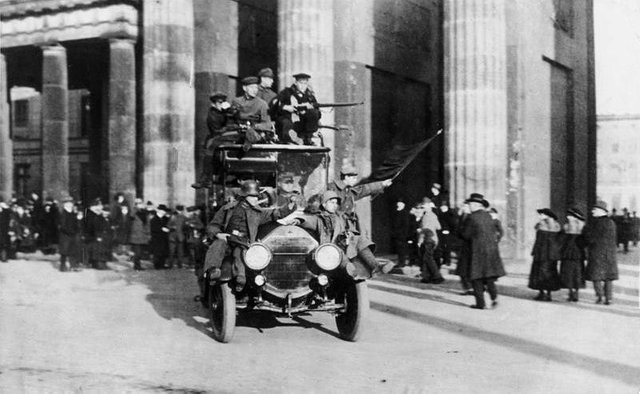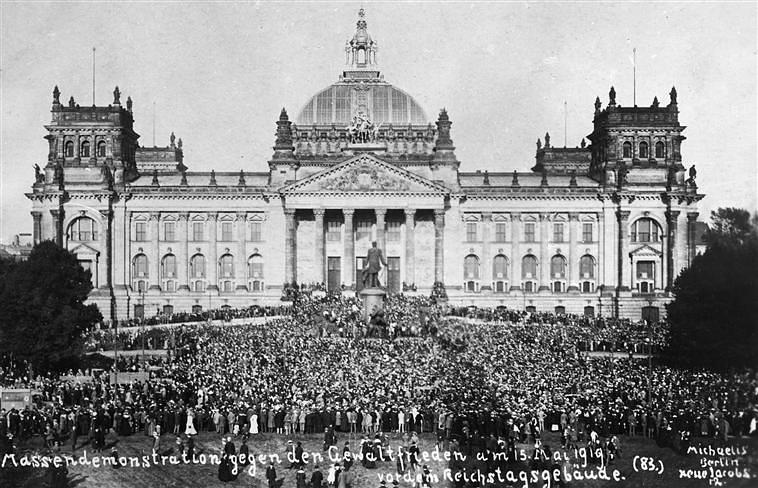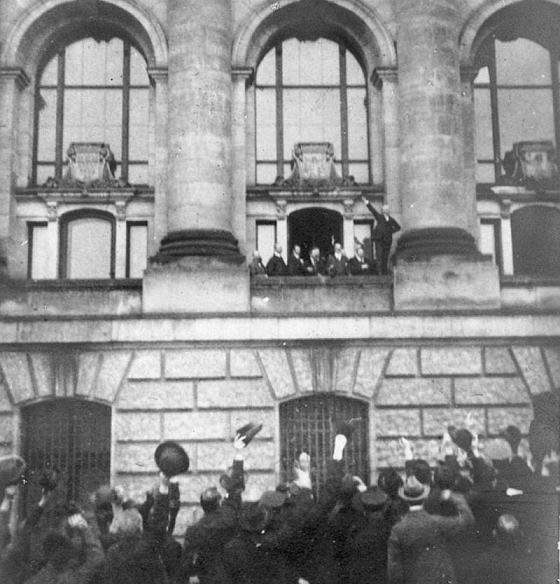In 1918, radical revolutionary students occupied the University of Berlin, holding the principal and a group of professors who remained in the school for the day as hostages. Einstein did not support scientists in the service of war. On the day Einstein took the tram to the Capitol building in Berlin to save those scientists, he looked like a poor man trying to find food to keep him alive. He was like the tired man who had lived through four years of World War II in the city.

(Ullstein Bild via Getty)
In the fall of 1918, the whole city, the whole country, even the small groups like Einstein were running around, trying to save some traditional things. But the revolution was about to destroy everything. For Germany, the revolution was largely a way of expressing anger. Most people didn't think about what would happen after the revolution. People waited in horror for the coming social system, fearing that the new government would take away the pieces of bread they had hidden in the closet. Even the most radical leftist leader, Rosa Luxemburg, advocated a new order to prevent the horrors of the Russian revolution.

Einstein did not seek grace, nor wealth, but his own inner life. He had been contemptuous of the German authorities since his boyhood. At the age of 17, he gave up his nationality and became a Swiss. But now the aristocrats, who represented the old power, had committed suicide. Einstein found that there were still some traditional things to be saved, such as the University of Berlin, which was being destroyed by the revolution.
In any case, Wilhelm II was at least good for scientists because he only cared about conquest and war. Then he allowed Einstein to conquer the Berlin scientific community. Einstein also hoped that such academic life would continue in new Germany, whatever the new social system.
It was not just for Relativity. This was the University of Berlin in the early 20th century. which was the world science center with Einstein, Bonn, Laue, Planck, Wernher von Braun, Hertz, John von Neumann. The group laid the foundations of today's physics. If the revolutionaries were to shoot at the scholars on the spur of the moment, world civilization would be stagnated for at least fifty years. Don't think that these revolutionaries can't do anything. They've already shown the world once in Russia.

The task of saving civilization now fell to Einstein's shoulder. He led the squad to the students wearing red armbands. The revolutionaries were often violent. Only running the king away could not smooth their anger. The excited students barricaded themselves in the doorway, ready to shoot any suspicious molecule near them. But Einstein must go to the center of the revolution to find the possibility of releasing their colleagues in the University of Berlin.

Einstein never wanted to talk about academic freedom, nor did he care most about being invited out of the conference room by the students. He wanted to save his colleagues of the University of Berlin. Can these scholars be released? The revolutionary students did not answer the question, only to tell Einstein that they had given control of the University of Berlin to a new revolutionary government.
However, the chaos had facilitated Einstein's small group. They entered the German leader's office without any hindrance and asked a favor of the head of the revolutionary government, Friedrich Ebert. Ebert was tortured by the trouble on his desk, but he could sign a document ordering the release of the hostages. With Einstein, the leader can finally solve a problem to show his authority.
Along with the freed colleagues, Einstein, Bonn, and Wertheimer left university. They were happy with the world and themselves. Berlin was suffering from famine and pestilence and was seduced by Bolshevism. But Einstein, like a knight, played against his fate and won the war. He would still believe in reason and justice.
100% of the SBD rewards from this #explore1918 post will support the Philadelphia History Initiative @phillyhistory. This crypto-experiment conducted by graduate courses at Temple University's Center for Public History and MLA Program, is exploring history and empowering education. Click here to learn more.